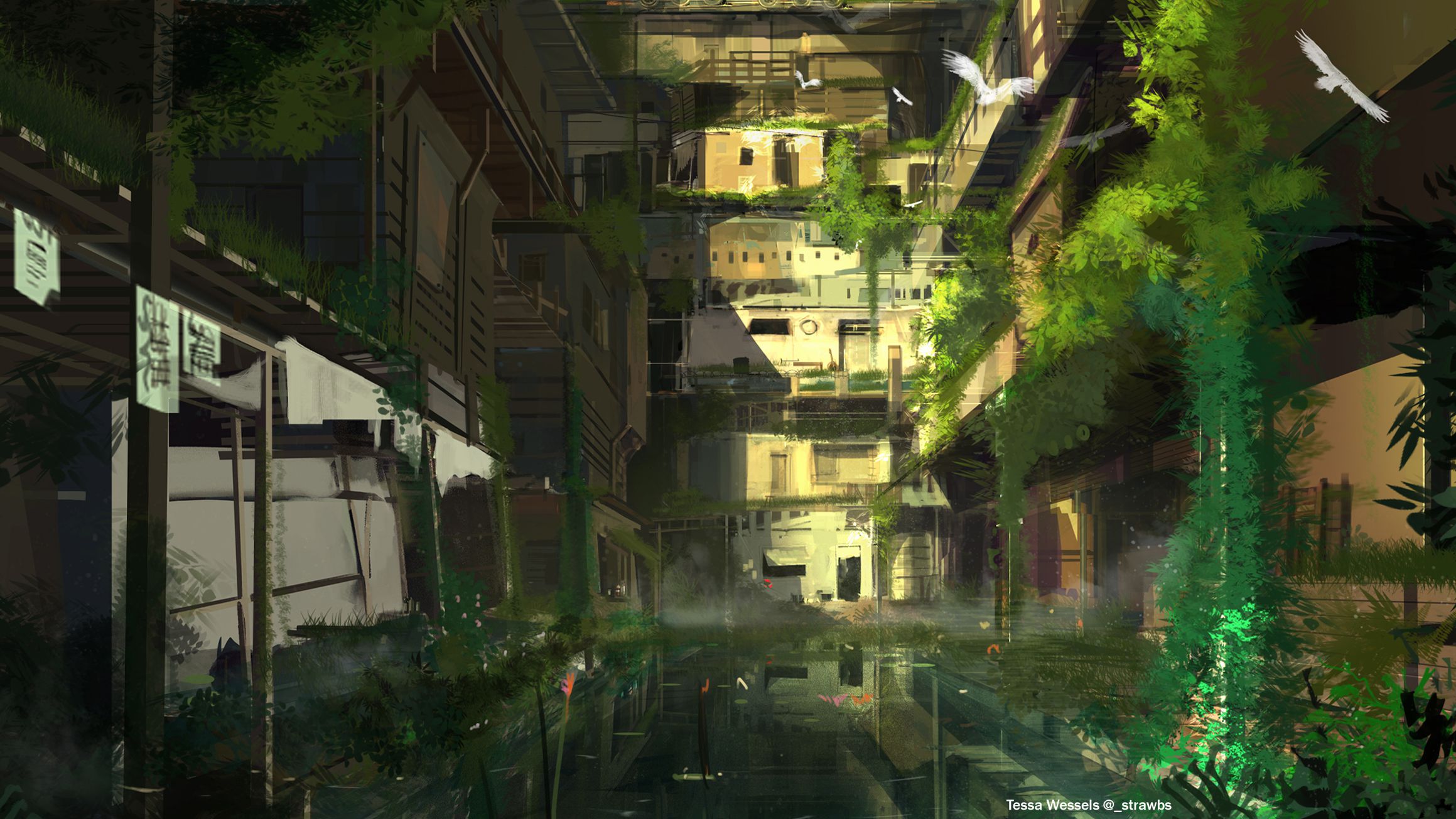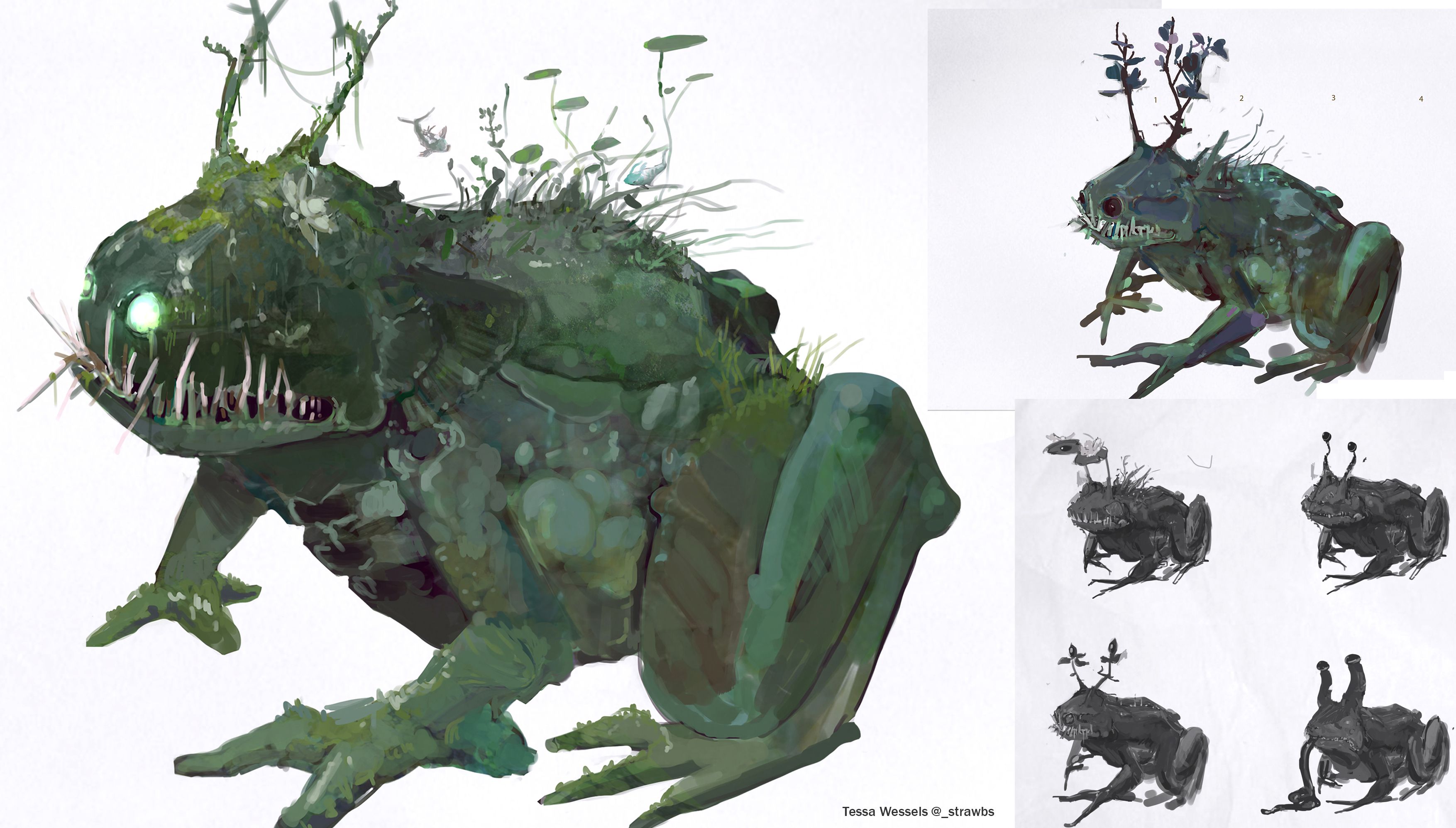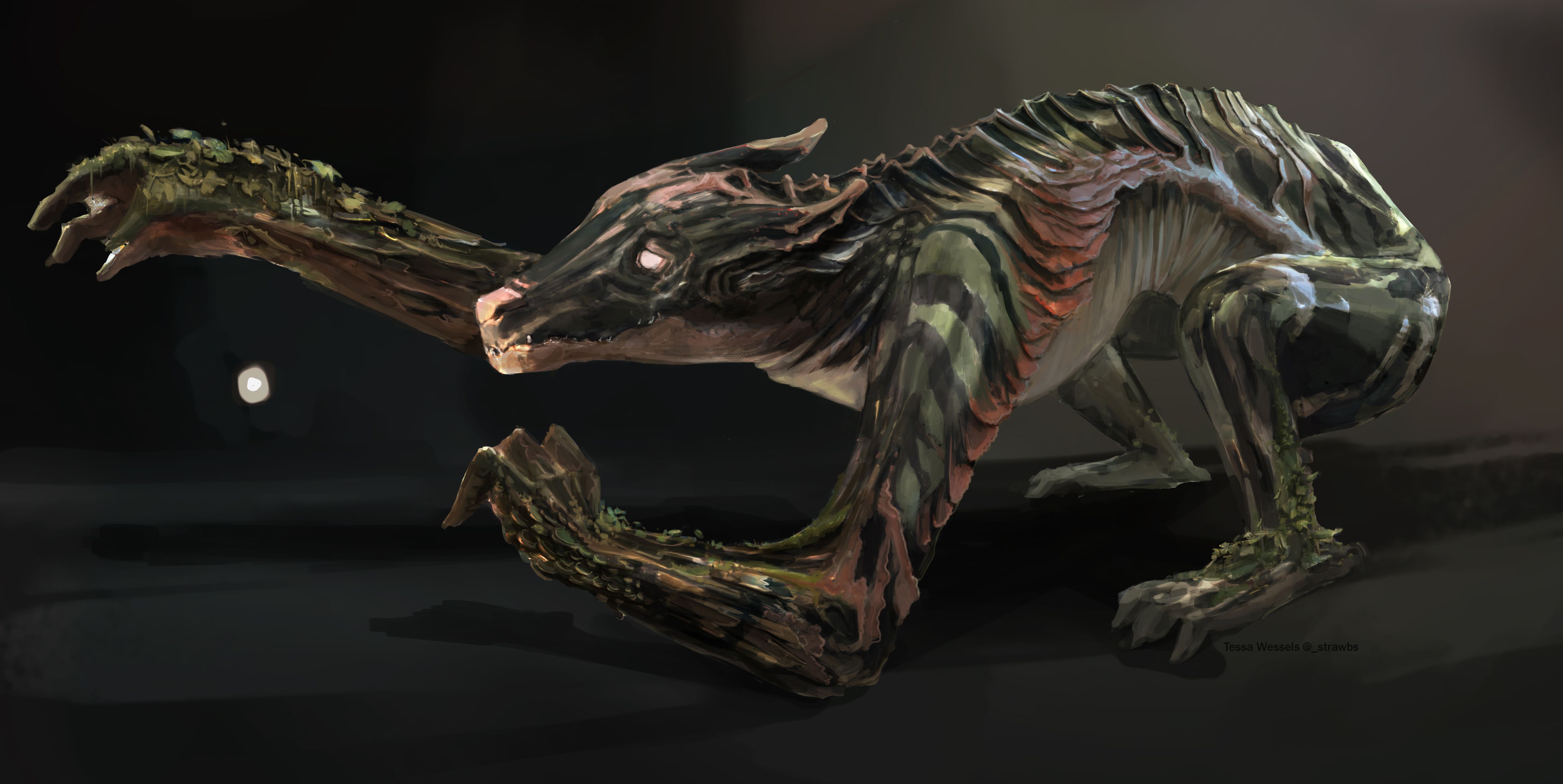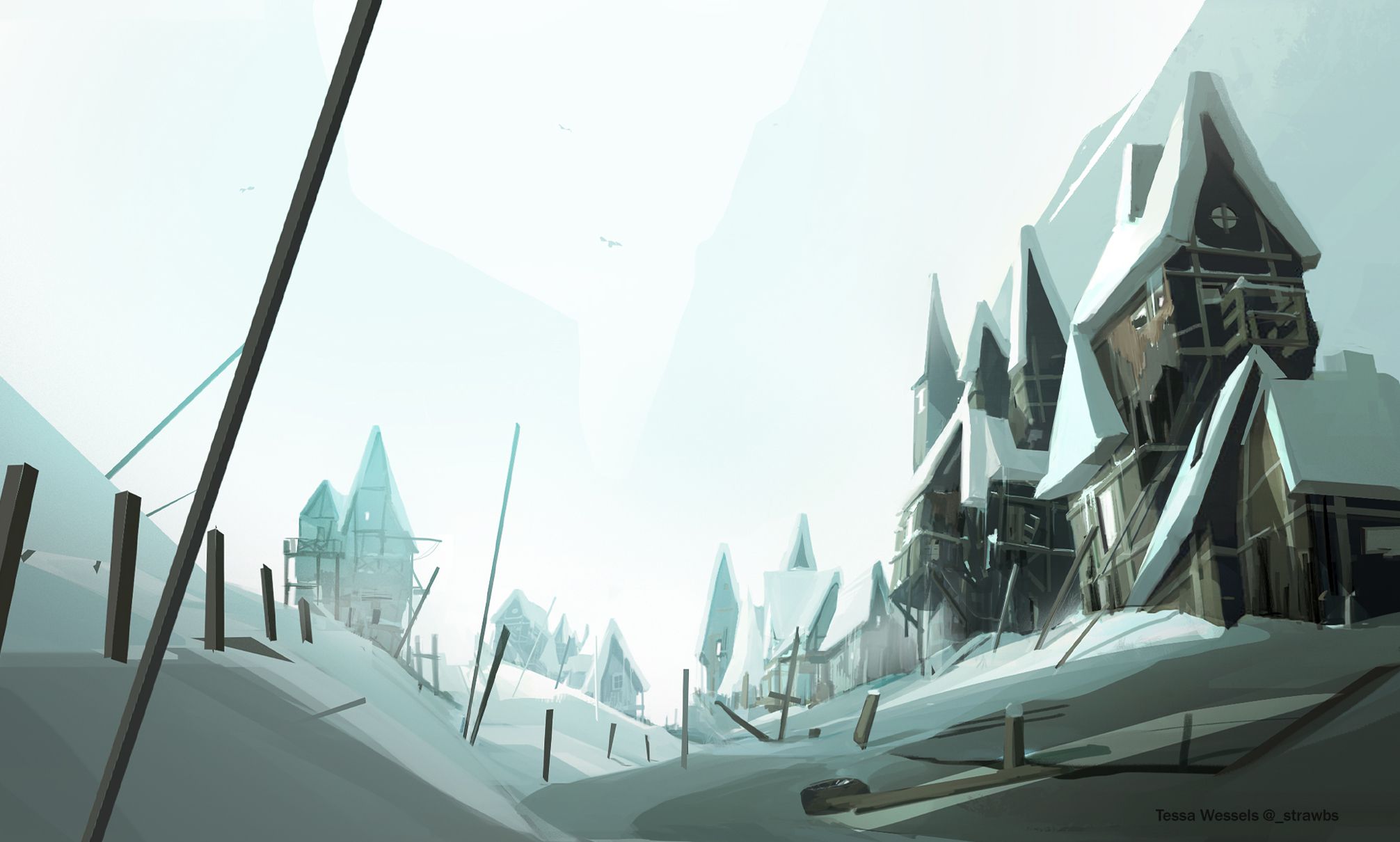No Choice but to Stan: Artist Interview with Tessa Wessels
Check out Tessa's Instagram and Artstation pages, you won't regret it!

Tell us a bit about yourself and what you’re currently doing?
As a kid, I spent most of my time painting - I used to paint on my walls and on massive rolls of cardboard that I would lug to school and back on the train. There was a part of me that wanted to become a highfalutin artist in a big gallery like Anselm Kiefer but there was another part that just wanted to paint crocodiles real good. It was during my time at Stellenbosch University that the crocodiles won. I came across some concept artists online and went through this terrible cosmic realisation that I wasn’t nearly as good as I thought I was. Although that feeling never goes away, I’m much more comfortable with that fact these days.
After my studies, I was lucky enough to take a year to work on my portfolio while doing the concept art course at Friends of Design. It was during this year that my first few jobs came in. I’ve been working as a concept artist ever since!
What are your main inspirations and who are some artists you look up to?
Oh man, I lose my mind around reference books! Finding new techniques, shapes and compositions to inform your visual library is a wonderful feeling. The funny thing is that the best reference books often have nothing to do with concept art, you can find a great reference for armour in a jewellery design handbooks just like you can reference weird-ass fashion catalogues for mech design.
Liana Anatolevich and Sergey Kolesov were two of my first discoveries as an aspiring concept artist. It’s an enviable skill to tell a story in a painting - you can look at their work for hours and keep finding little bits of information. For the more industrial stuff, Christian Pearce and Alice Bruderer. Their ability to bring personality and functionality into their concepts is something I really aspire to.

What do you consider the greatest contribution to your growth as an artist?
Other artists. You can teach yourself the fundamentals till the cows come home but without input and critique from other creatives, your work won’t evolve. I credit most of my growth as an artist to veteran artists and designers.
What would you tell your 18-year-old self about your career path and lessons?
Learning the fundamentals is always the answer to this one! Actively trying to learn is different to simply drawing something well, rather try to use sketching as a tool for learning more about the skill you’re trying to improve. Anatomy isn’t about the drawing you’re currently making but about what goes on in your head while you make it.
Oh, and please forget about making a flawless sketchbook - it never works out and that stuff only exists on pinterest. Rather, keep a special sketchbook where you make bad, ugly, worthless sketches that you’re embarrassed about and you’ll have a lot more fun.
Tell me about the most difficult project you’ve worked on and how you managed to finish it?
My first pure concept art job, I was painting creatures and environments for a small film pitch and I had no reference point of where to start or how to show my ideas clearly. I like choosing music that will enhance my work but it was blasting Missy Elliot at 4am that got me through that job.

In stressful situations, how do you find ways to persevere?
In my opinion, the most stressful thing is not knowing how to wrap your head around what needs to be done, and that happens a lot more frequently in the beginning. Luckily, every job you do teaches you new techniques and work-flows.
I think the best way to approach a difficult piece is to do research until you can’t wait to start painting. When I feel overwhelmed by a piece I try to find references and tutorials that are relevant to my task. Working without reference is like taking a test you haven't studied for while working with reference feels a lot more like an open book test - I’m allowed one high school analogy per day.
Are you currently trying to learn any specific skill, and how do you go about learning it.?
It’s super hard to focus on one particular skill because all the skills live together in this dark quantum spider web of trepidation and self-doubt. Sometimes I go into the Artstation wormhole and come out of it weakened and mumbling about how that one guy from America started his first job working remotely from his mother’s womb.
At the moment I’m trying to take the time to think things through before I put them down, or do more iterations of an idea, think of the material and the feel of something before I draw it onto something. It really helps to work from a brief. I recently asked a friend of mine to brief me so that I would have to stick to a central concept and that was amazingly fun.

What’s been the most useful or educational resource you’ve made use of in your career?
Other artists and the internet. I’ve noticed the most improvement in my work after critique from other concept artists. People usually know more about specific things than you do, getting your architect friend to look at your weird zombie castle can only be a good thing. You can find incredible, free resources online, I subscribe to art educators like Alphonso Dunn and Sinix Design. Whatever you’re struggling with, you can find tips and tricks on how to tackle it online.
What is your dream project and can you tell us a little more about it?
I’d love to design a range of fishy creatures and mechs for a fantasy world, make some parameters and then play around inside them. Other than that, I’m content with exploring a good brief!
Interviewed by Dante Ludolf